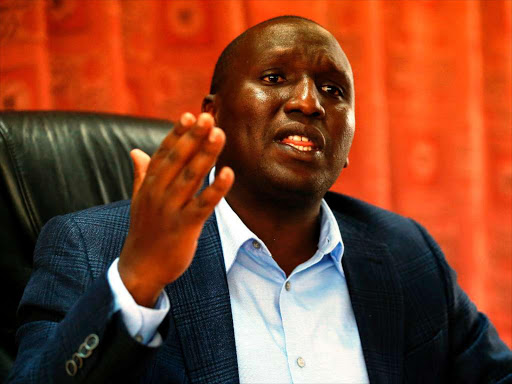
List of advisory to parents, guardians to curb gambling
Media asked to support responsible reporting and awareness.
"I do not even know how to bet, let alone have an interest in a betting firm or related business."
In Summary

Senate Majority Leader Aaron Cheruiyot has dismissed claims of collecting money from the proceeds of betting.
This follows allegations on social media that the Senator was allegedly involved in the proceeds of betting.
While dismissing the allegations, Cheruiyot said he does not even know how to bet or have an interest in betting firms.
“Stop this silly smear campaign. I do not even know how to bet, let alone have an interest in a betting firm or related business. Neither directly nor by proxy,” he said on Saturday in a statement on X.
This comes amid calls for the regulation of betting firms as Kenyan youths fall prey.
There are more than 200 betting firms currently licensed to operate in the market, more than double the 100 firms in 2021.
The betting industry attracts an excise tax of 15 per cent on stakes, a withholding tax 20 per cent on net winnings and a betting and gaming tax of 50 per cent which is on gross gaming revenue for operators.
This is an addition to corporate income tax on operations and other statutory deductions such as Pay as You Earn on employees, with the industry employing over 10,000 individuals directly and 500,000 indirectly.
In March, the Kenya Revenue Authority said it collected Sh12.47 billion in taxes from betting firms in the eight months to February 2025.
With the Betting Control and Licensing Board opening the new licensing period for the next financial year on May 1, chairperson Jane Makau said the regulator is keen on ensuring industry players comply with set regulations.
An article published by the National Library of Medicine in January 2022, titled “Gambling-related suicide in East African Community countries”, indicated there were about 18 suicides reported between 2017 and 2022.
Kenya had the highest number, accounting for 10 out of the 18 cases, Uganda with seven, while Tanzania had one case.
The survey showed most victims were university students and low-income Kenyans, like boda boda riders. More cases have been reported in the country.
Mental health experts warned that the speed of new betting formats exacerbates the problem.
They argued that this rapid form of gambling exploits human psychology, triggering compulsive behaviour.
According to a survey titled “Betting in Africa 2024” by global firm Geopoll, Kenya has emerged as a standout, with 82.81 per cent of its respondents having placed bets.
South Africa followed closely with 73.94 per cent, Ghana with 73.03 per cent, Uganda with 71.43 per cent, Tanzania with 71.13 per cent, and Nigeria with 65.32 per cent.
According to Geopoll, the rapid survey, targeting random users, revealed that 38 per cent of the respondents are currently employed. Close behind, 21.44 per cent reported being unemployed, while 20.15 per cent identified as business owners or self-employed individuals.
Additionally, 19 per cent indicated they were students, with a small two per cent unable to work.

Media asked to support responsible reporting and awareness.